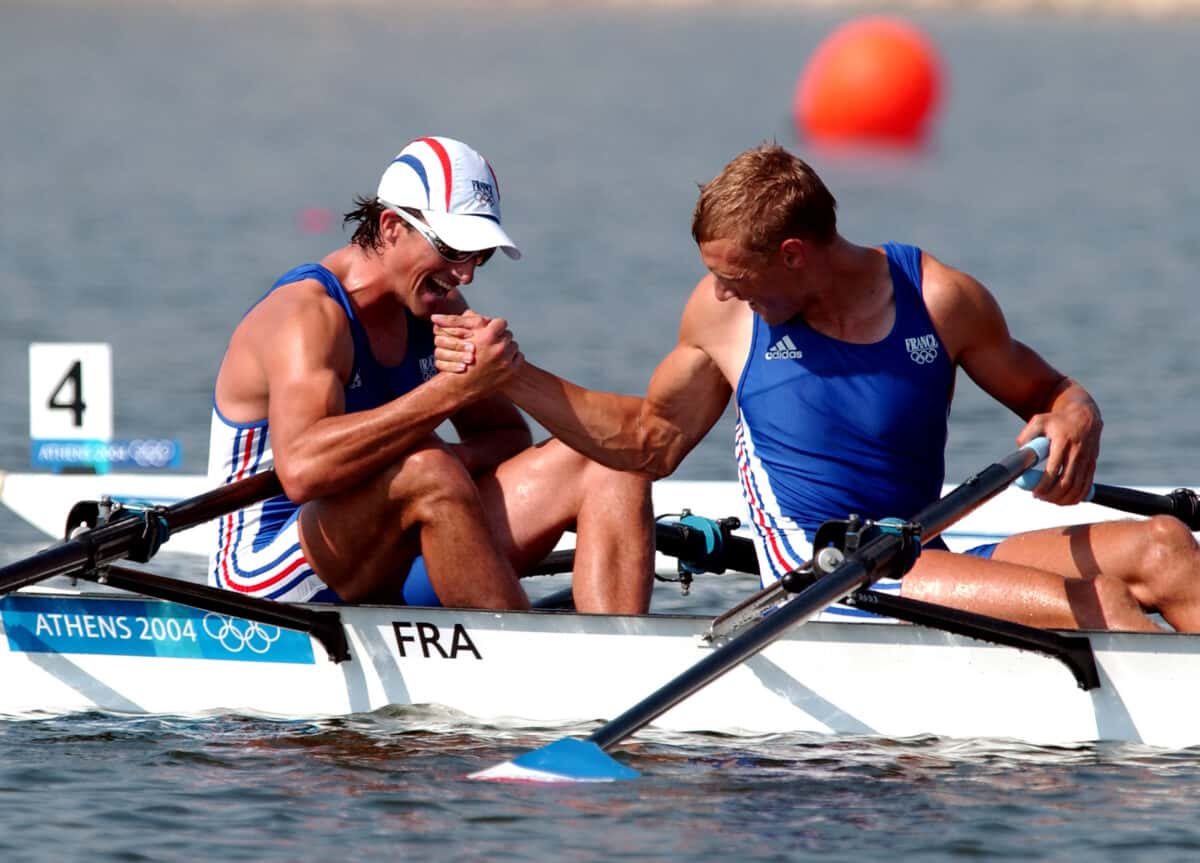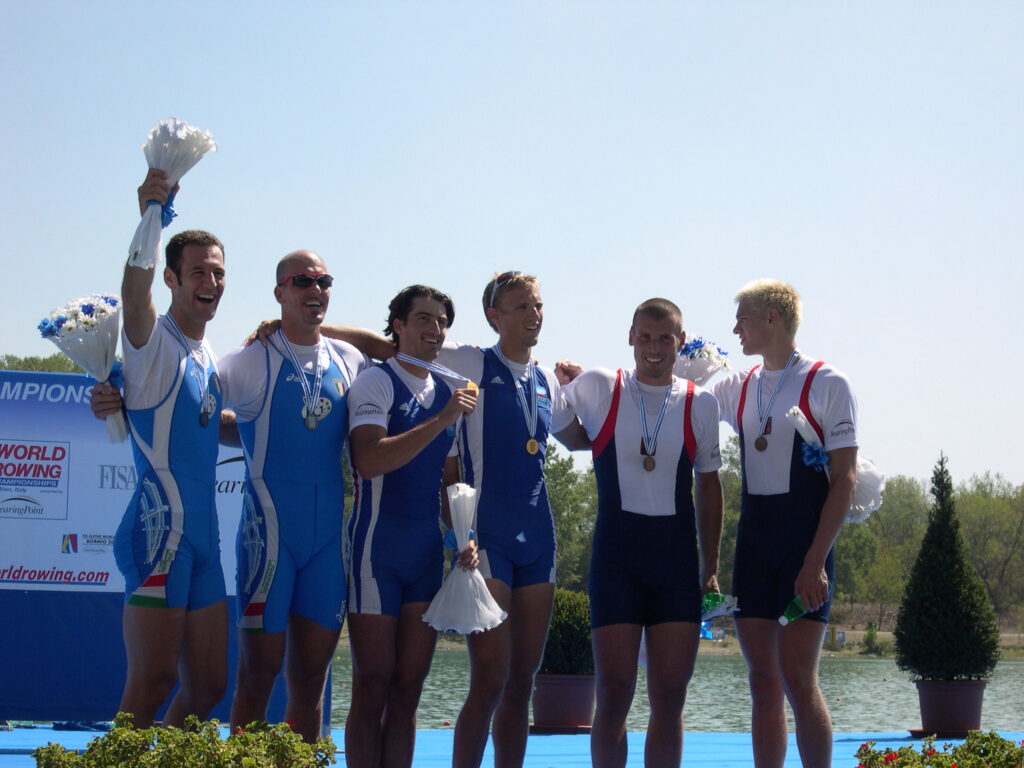
12 Feb 2024
Where are they now: Adrien Hardy
It has been exactly twenty years since France won its first-ever Olympic gold medal in the men’s double sculls. Adrien Hardy remembers his golden day in Athens – and hopes for a similar result for the French Olympic Rowing team on home waters this year.
Together with Sébastien Vieilledent, who is now the French Rowing Federation’s National Technical Director, Adrien Hardy made up one of the most successful French men’s double sculls combinations. They won World Rowing Championship gold in 2003 and Olympic gold in 2004 – Hardy won another World Championship title in 2006 with Jean-Baptiste Macquet.
The pinnacle of Hardy’s career, who started rowing in South of France, before moving to Burgundy, where he still lives today. “I joined the national team in 1998, and competed at my first World Championships in Canada in 1999, remembers Hardy. I competed in the single, I didn’t even have a boat – the Federation had to rent one for me. My first training, I was so stressed that I capsized.” But that same year, Hardy also won a gold medal at the World Rowing Under 23 Championships, at the time known as the Nations Cup.
The beginning of a great run in the men’s double sculls with Vieilledent, began in 2001. That duo reached the gold medal at the 2003 World Rowing Championships in Milan. “Sébastien and I had a great chemistry in the boat. We were both very technical, very efficient, had the same feel of the boat. We made the most of every training, every race, and had a great trust in one another. That race in Milan, we were technically one step above the competition, and that was certainly one of our best races together.”

In 2004, the French double went into Athens as favourites, although they had lost a couple of races in the spring to the Italian duo of Alessio Sartori and Rossano Galtarossa. “They seemed unbeatable, says Hardy. But we were very close to them in the semifinal, and saw that they were not very connected when under heavy pressure. We were confident, had a great race plan to attack early, put some pressure on them, never let them breathe. We attacked at the 750, never looked back, and got the gold.” A medal that could have never happened after a collision with a kayaker on the way to the start, that shook both athletes and ended with the kayaker in the water…
Looking back at the race today, the Olympic Champion remembers “not feeling a whole lot of emotions. We were so prepared, so focused on this race, that when we crossed the line, in my mind, we had just executed the plan to perfection, and achieved the goal we had when we came to Athens”.
Beijing, the “biggest disappointment”
Hardy says he only realised what he did “four years later in Beijing. We came into the final as heavy favourites, and our semifinal was probably one of the best races we’ve ever rowed together with Jean-Baptiste Macquet. But on Finals’ day, to avoid getting stuck in traffic with the bus, we decided to go to the venue with a taxi – driving was terrible, I got nauseous, it completely broke our training rhythm and warmup, and after 600m, the race was over for us. It was a very painful experience, and helped me understand how big was our performance from four years ago, when you’re expected to win and you actually deliver”.
Hardy’s career continued for another Olympic cycle, with a European title in 2008 in the eight, and after the London Games, he decided to hang up the oars. “For almost ten years, I didn’t row at all, he admits. I was involved in my local club back home, but as an advisor. I needed a break.”
Life out of the boat
Hardy was back around Rowing at the Tokyo Olympic Games, when he commentated for France Télévisions, calling out the gold medal of his London 2012 teammate, Matthieu Androdias, in the double sculls. He will be in Paris in the same role and hopes for an even better result for the whole of Team France. “We have a tradition in the double, we know how to make this boat go fast. The perfect scenario for me would be three medals, but before thinking about the Games, some boats will have to qualify – including the two lightweight doubles – at the Final Olympic & Paralympic Qualification Regatta.”
Now rowing occasionally as a master, enjoying his free time paragliding and acting, Hardy also watches all international competitions, and keeps a keen eye on the sport of Rowing – he has stayed in contact with a few teammates and competitors from his era. “I still enjoy watching Rowing a lot, says Hardy. While I see the development of beach sprints and the opportunities around it, I am more connected to ‘classic’ rowing and would love to see more exposure, more attention from media around the world to our sport.”

